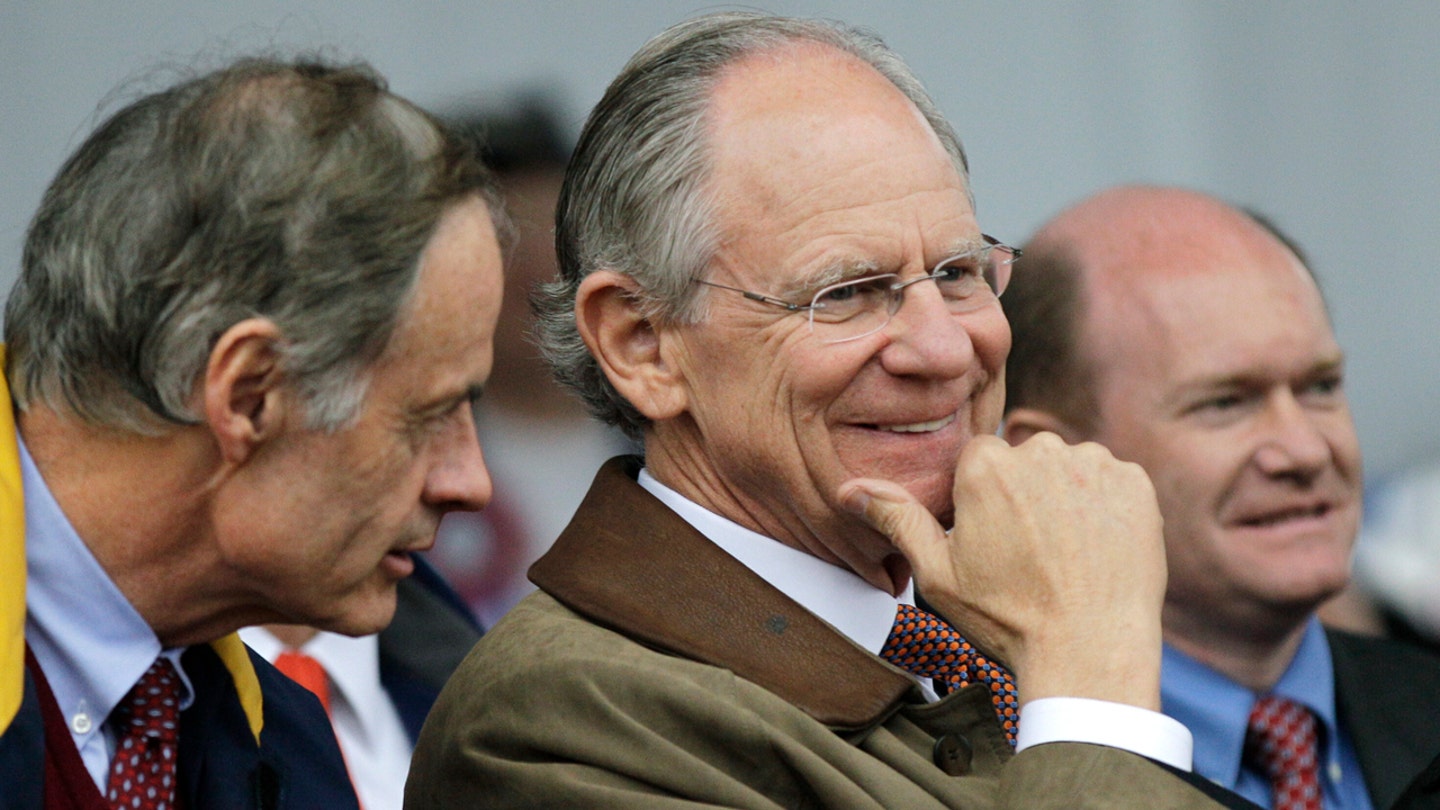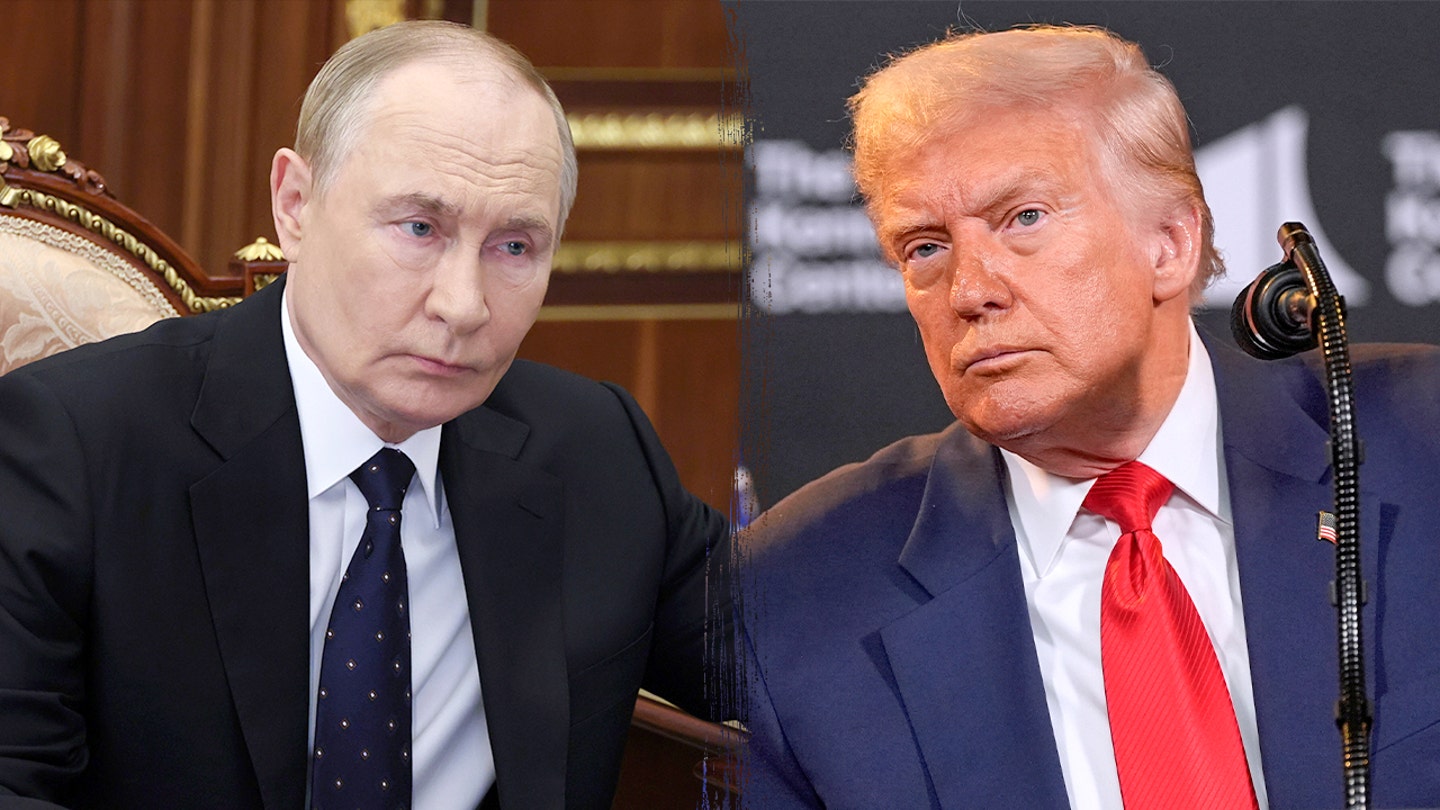
20 officers came to arrest man charged with throwing sandwich at a police officer in DC, his lawyer says
Entities mentioned:
- Sean Charles Dunn: Moral outrage, Indignation, Justice
- Pam Bondi: Righteousness, Control, Loyalty
- Department of Justice: Control, Power, Professional pride
- Donald Trump: Power, Control, Influence
- Jeanine Pirro: Loyalty, Righteousness, Influence
- White House: Power, Control, Unity
Article Assessment:
Credibility Score: 70/100
Bias Rating: 55/100 (Center)
Sentiment Score: 30/100
Authoritarianism Risk: 75/100 (Authoritarian Tendencies)
Bias Analysis:
The article presents multiple viewpoints, including government officials and the accused's side. However, there's a slight lean towards questioning the government's actions, particularly in framing the response as disproportionate.
Key metric: Trust in Government Institutions
As a social scientist, I analyze that this incident reflects growing tensions between federal law enforcement and civilians in Washington, DC. The disproportionate response to a minor altercation (20 officers arresting one man for throwing a sandwich) suggests an escalation of authoritarian tactics and a potential abuse of power. The swift firing and felony charges against a DOJ employee for a relatively minor offense could be seen as an attempt to suppress dissent within government ranks. This event, coupled with the increased federal law enforcement presence and the President's takeover of local police, indicates a concerning trend towards centralized federal control and potential erosion of local governance. The rhetoric from officials like Bondi and Pirro emphasizes a 'with us or against us' mentality, which could further polarize public opinion and decrease trust in government institutions.

National guard arrives in Washington DC – in pictures
Entities mentioned:
- National Guard: Duty, Security, Control
- Washington DC: Security, Stability, Unity
- Donald Trump: Power, Control, Influence
Article Assessment:
Credibility Score: 70/100
Bias Rating: 40/100 (Lean Left)
Sentiment Score: 30/100
Authoritarianism Risk: 65/100 (Authoritarian Tendencies)
Bias Analysis:
The article leans slightly left, evident in the framing of Trump's actions as controversial. However, it maintains a relatively factual tone without overtly partisan language.
Key metric: Political Stability Index
As a social scientist, I analyze that the deployment of the National Guard to Washington DC signals a significant escalation in the government's response to civil unrest. This move likely impacts the Political Stability Index by demonstrating a show of force that could either quell protests or potentially inflame tensions further. The use of military personnel in a domestic context raises questions about the balance between maintaining order and respecting civil liberties, which are crucial components of political stability in a democracy.

Texas Democrats signal they are ready to end redistricting standoff and return to state
Entities mentioned:
- Texas Democratic lawmakers: Justice, Influence, Righteousness
- Texas Republicans: Power, Control, Ambition
- Donald Trump: Influence, Power, Legacy
- California Democrats: Competitive spirit, Justice, Influence
- Greg Abbott: Control, Power, Determination
- Barack Obama: Influence, Unity, Justice
Article Assessment:
Credibility Score: 75/100
Bias Rating: 55/100 (Center)
Sentiment Score: 40/100
Authoritarianism Risk: 35/100 (Generally Democratic)
Bias Analysis:
The article presents perspectives from both Democrats and Republicans, though it provides more detailed coverage of Democratic actions and motivations. While it maintains a generally neutral tone, there's a slight lean towards framing the Democrats' actions more sympathetically.
Key metric: Electoral Competitiveness
As a social scientist, I analyze that this article highlights a significant political struggle over redistricting in Texas, with potential national implications for the balance of power in the U.S. House of Representatives. The Texas Democrats' temporary exodus to deny quorum was a strategic move to delay Republican-led redistricting efforts, which could result in additional Republican seats. This standoff reflects broader tensions in American democracy, particularly regarding voting rights and political representation. The involvement of other states, notably California, in potentially offsetting Texas' redistricting impact, demonstrates the interconnected nature of state-level political maneuvering in shaping national electoral outcomes. This situation underscores the critical role of redistricting in determining electoral competitiveness and representation, potentially affecting the overall health and fairness of the democratic process.

Mike Castle, Delaware's last Republican governor and congressman, dead at 86
Entities mentioned:
- Mike Castle: Duty, Public service, Legacy
- Delaware Republican Party: Loyalty, Recognition, Unity
- Joe Biden: Ambition, Power, Legacy
- Gene Truono: Respect, Duty, Unity
- Matt Meyer: Duty, Recognition, Unity
Article Assessment:
Credibility Score: 85/100
Bias Rating: 45/100 (Center)
Sentiment Score: 60/100
Authoritarianism Risk: 20/100 (Strongly Democratic)
Bias Analysis:
The article presents a balanced view of Castle's career, highlighting achievements without overt partisan framing. It includes perspectives from both Republican and Democratic sources, maintaining a centrist approach to reporting.
Key metric: Political Polarization Index
As a social scientist, I analyze that this article highlights the career of Mike Castle, a moderate Republican known for bipartisan work and fiscal conservatism. His approach to politics, characterized by centrism and willingness to work across party lines, stands in contrast to the increasing polarization in American politics. Castle's legacy, particularly his work on commemorative coin programs and education reform, demonstrates how politicians can achieve lasting impact through collaborative efforts. The article's focus on Castle's moderate stance and successful career until his 2010 primary loss may indicate a shift in the political landscape towards more partisan positions, potentially impacting the Political Polarization Index by reminding readers of a less divisive political era.

Christian Faith An Important Part Of Who Senator Pretends To Be
Entities mentioned:
- Senator Josh Hawley: Ambition, Power, Control
- Christian constituents: Loyalty, Righteousness, Unity
Article Assessment:
Credibility Score: 30/100
Bias Rating: 25/100 (Lean Left)
Sentiment Score: 25/100
Authoritarianism Risk: 45/100 (Mixed/Neutral)
Bias Analysis:
The article leans left, using satire to criticize a Republican senator's perceived insincerity. The language and framing are overtly negative towards the subject, suggesting a clear political bias against conservative Christian politicians.
Key metric: Political Polarization Index
As a social scientist, I analyze that this article portrays Senator Josh Hawley as using Christian faith as a tool for political gain, potentially increasing political polarization. The satirical tone suggests a disconnect between professed religious values and actual motivations of political figures, which could lead to increased cynicism among voters and further division between religious and secular segments of society. This portrayal may contribute to eroding trust in political institutions and religious sincerity in public office, potentially exacerbating existing tensions in the American political landscape.

Congress Passes Blank Bill For Trump To Write Whatever Law He Wants
Entities mentioned:
- Congress: Power, Loyalty, Obligation
- President Donald Trump: Power, Control, Ambition
- House Speaker Mike Johnson: Loyalty, Power, Influence
- Americans: Security, Unity, Control
Article Assessment:
Credibility Score: 20/100
Bias Rating: 30/100 (Lean Left)
Sentiment Score: 20/100
Authoritarianism Risk: 95/100 (Totalitarian Risk)
Bias Analysis:
The article leans left, critiquing perceived right-wing tendencies towards authoritarianism. It uses satire to exaggerate and mock the idea of giving a Republican president unlimited power, indicating a liberal perspective.
Key metric: Checks and Balances Index
As a social scientist, I analyze that this satirical article highlights extreme concerns about the erosion of checks and balances in the U.S. government. The fictional scenario of Congress passing a blank bill for the president to write any law undermines fundamental democratic principles and separation of powers. This exaggerated portrayal reflects anxieties about executive overreach and legislative abdication of responsibility. The impact on the Checks and Balances Index would be catastrophic, effectively reducing it to zero, as it depicts a complete surrender of congressional authority to the executive branch. This scenario, while satirical, serves as a stark warning about the potential consequences of unchecked executive power and the importance of maintaining strong democratic institutions.

Trump Assures Nation Uncommonly Violent Ceasefire In Effect
Entities mentioned:
- Trump: Power, Control, Influence
- Nation: Security, Unity, Anxiety
Article Assessment:
Credibility Score: 25/100
Bias Rating: 40/100 (Lean Left)
Sentiment Score: 45/100
Authoritarianism Risk: 30/100 (Generally Democratic)
Bias Analysis:
The article leans left due to its satirical portrayal of Trump, implying incompetence or contradiction. However, as clear satire, it's not presenting itself as factual news, tempering the bias score.
Key metric: Political Stability Index
As a social scientist, I analyze that this article appears to be satirical content rather than a genuine news report. The juxtaposition of a serious headline about Trump and a ceasefire with an unrelated horoscope for Leo suggests this is likely from a humor website or publication. The concept of an 'uncommonly violent ceasefire' is oxymoronic and absurd, further indicating satirical intent. This type of content, while not factual, can influence public perception of political figures and events, potentially impacting the Political Stability Index by shaping opinions through humor and ridicule.

Putin praises Trump’s ‘sincere’ peace efforts, signals possible US-Russia nuclear deal
Entities mentioned:
- Vladimir Putin: Power, Influence, Control
- Donald Trump: Legacy, Recognition, Ambition
- Volodymyr Zelenskyy: Self-preservation, Unity, Determination
- Keir Starmer: Duty, Influence, Unity
- Friedrich Merz: Duty, Influence, Unity
- Emmanuel Macron: Influence, Unity, Leadership
- JD Vance: Duty, Influence, Professional pride
- Gen. Keith Kellogg: Duty, Professional pride, Security
Article Assessment:
Credibility Score: 75/100
Bias Rating: 45/100 (Center)
Sentiment Score: 55/100
Authoritarianism Risk: 35/100 (Generally Democratic)
Bias Analysis:
The article presents multiple perspectives, including those of Russia, the US, and Ukraine, indicating an attempt at balanced reporting. However, there's a slight emphasis on Western viewpoints and actions, which may suggest a subtle Western-centric framing.
Key metric: International Relations and Diplomacy
As a social scientist, I analyze that this article highlights a potential shift in US-Russia relations, centered around nuclear arms control and the ongoing conflict in Ukraine. The upcoming summit between Trump and Putin represents a critical juncture in international diplomacy, with potential ramifications for global security. Putin's praise of US efforts and hints at a possible nuclear deal suggest a strategic positioning ahead of the talks. However, Zelenskyy's skepticism indicates ongoing tensions and complexities in resolving the Ukraine conflict. The involvement of other world leaders and the 'Coalition of the Willing' underscores the global significance of these negotiations. The article suggests a delicate balance of power dynamics, with both Trump and Putin potentially seeking diplomatic victories for domestic and international gain.

Could Trump's meeting with Putin be the next Reagan-Gorbachev moment?
Entities mentioned:
- Donald Trump: Power, Legacy, Influence
- Vladimir Putin: Control, Power, Self-preservation
- Lindsey Graham: Loyalty, Influence, Duty
- Ronald Reagan: Legacy, Peace, Freedom
- Mikhail Gorbachev: Reform, Peace, Unity
- Fred Fleitz: Loyalty, Professional pride, Influence
- Dan Hoffman: Professional pride, Wariness, Security
- Peter Rough: Professional pride, Influence, Analysis
- Volodymyr Zelenskyy: Self-preservation, Unity, Duty
- Karoline Leavitt: Duty, Loyalty, Professional pride
Article Assessment:
Credibility Score: 75/100
Bias Rating: 55/100 (Center)
Sentiment Score: 55/100
Authoritarianism Risk: 35/100 (Generally Democratic)
Bias Analysis:
The article presents multiple viewpoints, including both supportive and skeptical perspectives on the Trump-Putin meeting. While it leans slightly towards optimism about Trump's approach, it balances this with expert caution, maintaining a relatively centrist stance.
Key metric: Diplomatic Relations
As a social scientist, I analyze that this article highlights a potential shift in US-Russia relations, drawing parallels between the upcoming Trump-Putin meeting and the historic Reagan-Gorbachev talks. The comparison suggests a possible de-escalation of tensions, particularly regarding the Ukraine conflict. However, experts express skepticism about Putin's willingness to end the war, unlike Gorbachev's reformist approach. The article emphasizes Trump's 'peace through strength' strategy, suggesting that economic leverage and diplomatic pressure could influence the outcome. This meeting could significantly impact US diplomatic relations, potentially altering the course of the Ukraine conflict and broader US-Russia dynamics. The emphasis on communication with European allies post-meeting indicates a multilateral approach to potential outcomes.

Armenia and Azerbaijan leaders seek to ease Russian and Iranian concerns after US-brokered peace deal
Entities mentioned:
- Nikol Pashinyan: Unity, Security, Legacy
- Ilham Aliyev: Unity, Influence, Legacy
- Donald Trump: Influence, Legacy, Recognition
- Russia: Influence, Control, Wariness
- Iran: Security, Influence, Wariness
- Armenia: Security, Unity, Self-preservation
- Azerbaijan: Unity, Security, Influence
- United States: Influence, Power, Control
- Armenian Apostolic Church: Loyalty, Righteousness, Moral outrage
Article Assessment:
Credibility Score: 75/100
Bias Rating: 55/100 (Center)
Sentiment Score: 60/100
Authoritarianism Risk: 35/100 (Generally Democratic)
Bias Analysis:
The article presents multiple perspectives, including those of Armenia, Azerbaijan, Russia, and Iran, indicating an attempt at balanced reporting. However, there's a slight emphasis on the positive aspects of US involvement, which may suggest a subtle pro-Western lean.
Key metric: US Global Influence Index
As a social scientist, I analyze that this article showcases a significant shift in regional power dynamics in the South Caucasus. The US-brokered peace deal between Armenia and Azerbaijan represents a strategic advancement of American influence in a traditionally Russian-dominated region. This development likely improves the US Global Influence Index by establishing a foothold through the TRIPP project. The deal challenges Russia's and Iran's regional influence, potentially altering geopolitical balances. However, it also risks domestic instability in Armenia and regional tensions with Iran. The agreement's long-term success depends on managing these challenges and maintaining the delicate balance between regional powers.